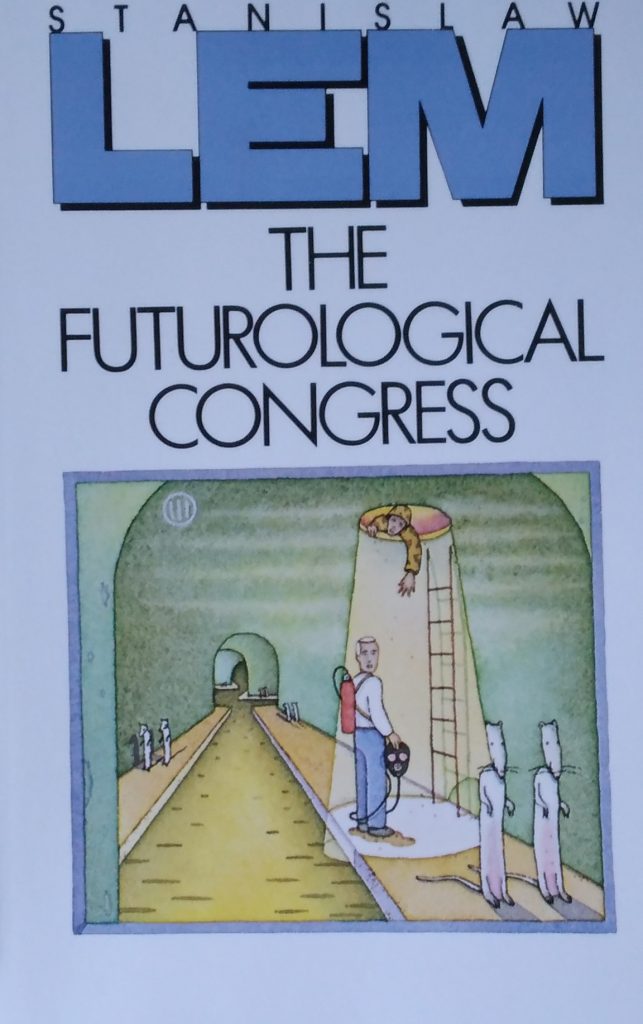By Stanislaw Lem

This is the second book I have consumed in the throws of my new found addiction to Stanislaw Lem’s satirical works. It was originally published in Polish and translated by Michael Kandel. Futurological Congress is the 3rd book in the English publications of the Ijon Tichy series. I am still awaiting delivery of the second and fourth, so as of this I have not read them yet.
The Futurological Congress is a 149 page single story, or novella as opposed to a series of short stories like those found in The Star Diaries. Ijon Tichy is a well known space pilot and often called upon hero from some future Earth. In this story he is invited/pressured into attending the 8th World Futurological Congress in Costa Rica. In attendance are the worlds most renowned futurologists. Concurrent with his convention the 106 floor Hilton was also host to ‘twice as many reporters,’ the Planetary Council of Student Protest Veterans, the Convention of Publishers of Liberated Literature, and the Phillumenist Society which Tichy describes as matchbook collectors, and the rare tourist here and there.
All hell breaks loose when a group of rebels doses the air and water supply with hallucinogenic chemicals. The futurologists and hotel staff retreat to the underground sewer, where Tichy passes in and out of hallucinations, culminating in a series of fully immersive virtual deaths. After the final ‘death,’ he is reanimated and believes that he is no longer hallucinating and that he has been revived in 2039.
The future appears at first to be a utopia where all human problems have been solved. He is joined by his friend and colleague Professor Tarantoga. Tichy soon learns that the so called problems of humanity have been solved through the widespread use of reality altering medications. As Tichy peels back the layers of this ‘reality,’ he is met with the horrific truth.
Futurological Congress is humorous to be sure, but it is not laugh out loud funny like parts of the Star Diaries. Ijon Tichy narrates, and he is still the same character. One reviewer stated that the character constantly gets in to and then out of trouble, but purely by happenstance. It’s true. He is the hero, not because of his personal qualities, but because he is the one that survives by blind chance every time, to tell the tale. This story is longer and more focused. Its humor is sarcastic and biting and altogether funny in a different and deeper way than the shorter stories of The Star Diaries.